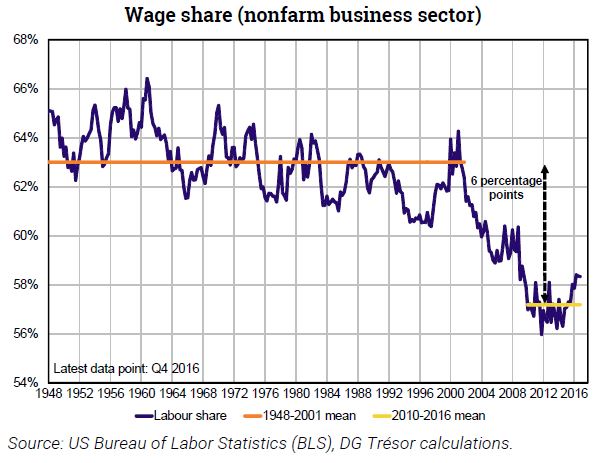Trésor-Economics No. 216 - The shift in US wage share
The share of wages in value added was stable for decades in the United States, before it started diminishing in the 2000s. The wage share historically fluctuated around an average 63 percent, before declining by nearly 6 percentage points from its 1948-2001 level. Similarly, the wage share has fallen in most advanced and emerging countries, with the exception of France.
The decline of the aggregate wage share observed in the United States is concentrated in specific sectors, most notably manufacturing, which explains half of the decline, as well as telecommunication, wholesale and retail, and transport.
The decline of the wage share in manufacturing may be explained by the expansion of international trade, as globalisation prompted firms to offshore the more labour-intensive stages in their production processes, thus reducing the US labour share. Technical progress may have also played a role, though the impact is difficult to assess at this time.
Moreover, reduced competitive pressures in some service sectors may have raised profits and thus return on capital. The growing prominence in the US economy of "superstar" firms, which enjoy a relatively high degree of concentration, is therefore considered to contribute to the decline of the aggregate wage share.
